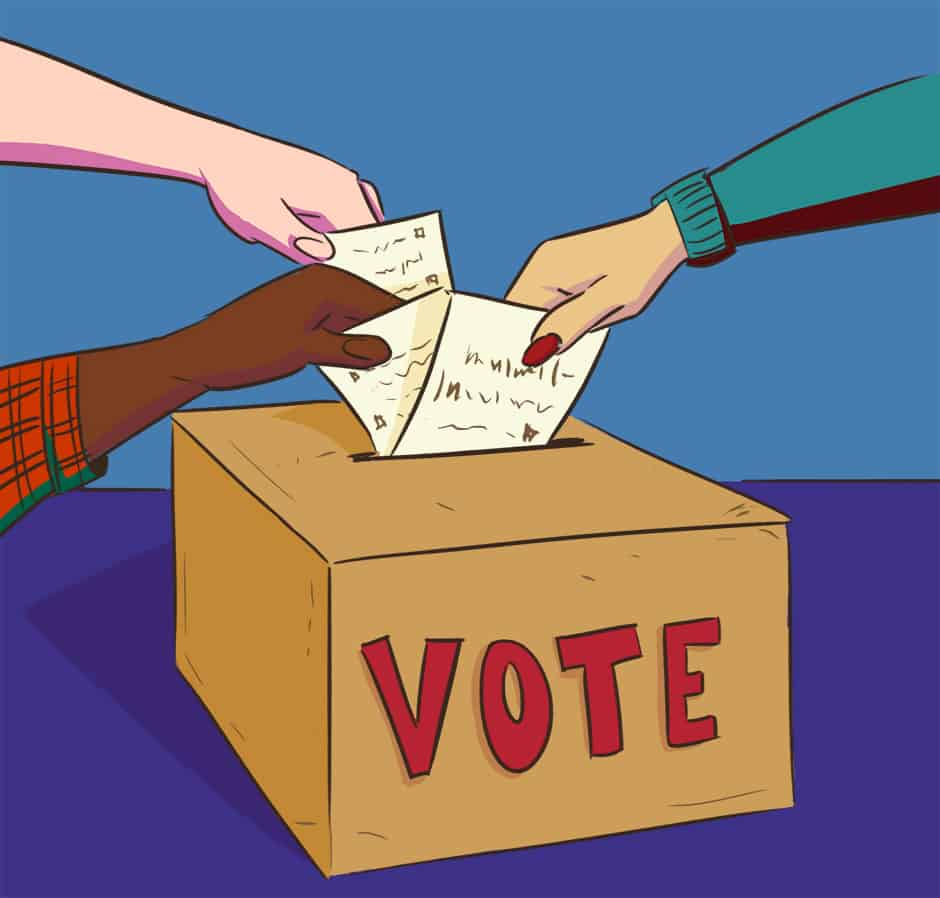In the 2019 federal election, only 53.9 per cent of voters between the ages of 18–24 years voted, which was considerably lower than the 70.6 per cent turnout rate for Canadians above 35 years old.
Compared to previous generations, young people and students, in particular, are increasingly uninvolved in traditional politics, and the reality of Canadian politics is not encouraging them to participate. Students also seem to be gravitating toward science, technology, engineering and mathematics (STEM) fields that do not provide much motivation to be politically engaged. Furthermore, an entire segment of the student population — international students — are unable to be a part of the political process in the first place.
More STEM jobs may mean less political engagement
The industries with the highest potential earnings and most opportunities naturally attract many young people, and in this regard, political engagement does not pay the way it used to. Prior to this generation, Canada’s most prosperous and prestigious sectors, such as civil service, were strongly intertwined with politics. Also, workers who were members of unions had to be politically active to maintain their wages, whose remained higher in the mining sector than in the private sector through the 1970s.
However, opportunities for advancement in the private sector have risen dramatically in recent decades, especially in STEM fields. The 1945 salary of a federal MP and physician were, when adjusted for inflation, both worth the equivalent of about $180,000 today — but the former’s salary has stagnated, whereas the physician’s has risen to above $300,000.
Pursuing a scientific career is not necessarily a barrier to political engagement — former British Prime Minister Margaret Thatcher was a chemist, and both China’s current leader, Xi Jinping, and his predecessor, Hu Jintao, earned engineering degrees — but it seems unlikely that many Canadian science students will be making the jump into politics. The closest Canada came to a premiership with a scientific background was that of Arthur Meighen, who studied mathematics back in the 1920s. In 2019, only 7.4 per cent of Canada’s 338 MPs were confirmed to have earned a postgraduate STEM degree.
The relative prominence of government in everyday life has diminished. Though students benefit from government-funded health care and education, many of them will join the 12 million Canadians currently working in the private sector. The immediate determinant of their quality of life will be the employer who pays their salary. Even if they’re taken hostage, a Canadian’s best hope will probably be the ‘kidnap and ransom insurance’ many top companies offer employees, seeing that Canada officially maintains a policy of non-negotiation with terrorists. If the private sector is more responsible for one’s livelihood than the government, what motivation do Canada’s 12 million private sector workers have to be politically active?
Students need motivation and opportunity to vote
In recent years, political discourse has expanded to include issues relevant to many traditionally underrepresented demographics — but students are not among them. In 2019, neither of the two largest parties maintained a sufficiently comprehensive position on student finances — a very pressing issue for students, considering one in six bankruptcies has to do with student debt.
The Liberal party’s platform in 2021, however, included policies that waive student loan interest until 2023 and pause loan payments for parents with children under five. The Conservative party promises to increase support for underfunded universities and improve the affordability of Canadian real estate for this generation. Meanwhile, the New Democratic Party aims to integrate postsecondary education into the public education system while also assisting students in debt with up to $20,000 in loan forgiveness. Whether or not this increase in relevant policies will improve youth and student engagement will become clearer after September 20.
Furthermore, while international students comprised 16.2 per cent of Canada’s postsecondary population in the 2018–2019 academic year — and are currently estimated to represent 21 per cent of U of T’s student body — they are excluded from Canadian political life.
Canada has expanded political participation to women and minoritized groups over the course of the 20th century. However, Canada is one of the few countries that deprive certain individuals of rights which they once had. For instance, unlike other Commonwealth countries, Canada revoked British subjects’ right to participate in the Canadian political process, with Nova Scotia holding the last Canadian provincial election in 2006 in which British subjects could participate.
Students from Commonwealth countries, in addition to other international students, should be able to participate in Canadian politics. Eliminating citizenship as a requirement for political rights can allow politics to become a more inclusive subject on campus and in Canadian society as a whole. Canadian politics shaped the development of Canada — yet it struggles to find its place in today’s world. Whatever course of action is taken, politics will only remain relevant if it can engage everyone in Canada.
Daniel Yihan Mao is a first-year economics student at Victoria College.


